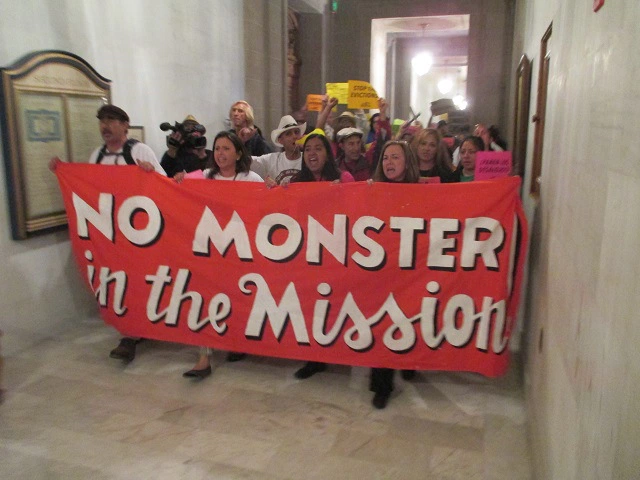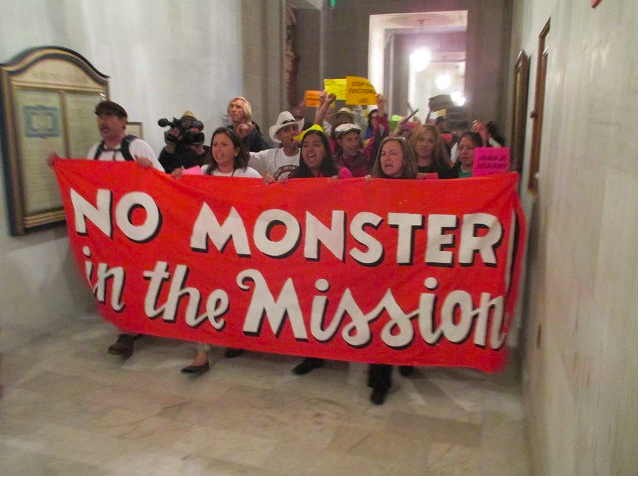
The Land Use and Transportation Committee hearing this week was remarkable: For the first time ever, as far as I can remember, the Planning Department admitted that it has failed to consider racial and social equity in development decisions, and kind of, sort of began to move toward changing that approach.

The issue on the table was the future of The Hub, also known as the Van Ness and Market Special Residential Use District, which has been a planning fiasco for some time now.
The department wants to rezone the 84-acre area to allow as many as 15,000 new residents. The plan has moved forward despite serious concerns about the environmental impacts, the traffic, the damage to Muni when thousands of Uber, Lyft, and Amazon delivery vehicles swarm the area, and numerous other problems.
And Mayor Breed is asking the supes to approve a massive rezoning that would increase height limits on at least 18 parcels, allow more density, and add luxury housing that would have profound impacts on the surrounding areas, including the Western Addition, the Mission, and Soma.
Planning was going along with this, even though everyone involved know there were, in planner terms, impacts “that cannot be mitigated.” This was going to be a mess – and the most important impact would be the ongoing displacement of vulnerable communities as the addition of thousands of rich people to the area would drive up property values, drive out community-serving businesses, and force out low-income renters.
But the rezoning and special benefits the mayor wants (including a “streamlined” housing approval process that would eliminate most public hearings and oversight) requires board approval.
Ansd Sup. Dean Preston, who represents the Western Addition, with the support of Sup. Hillary Ronen, who represents the Mission, and Sup. Matt Haney, who represents Soma, were not on board.
Since the board tends to defer to district supes on these sorts of issues, the Hub plan was in serious jeopardy.
Help us save local journalism!
Every tax-deductible donation helps us grow to cover the issues that mean the most to our community. Become a 48 Hills Hero and support the only daily progressive news source in the Bay Area.
At the hearing this week, Lily Langlois, a senior planner, in essence backed off from what the department has been saying since this unsustainable plan first emerged. She told the supervisors that the department has been engaged in a racial and social equity analysis of the proposal, and that some serious issues have emerged.
Sup. Aaron Peskin, who chairs the committee, said that Langlois testimony was “an admission that Planning has never seen urban development through an equity lens until now. I am delighted that the department is finally speaking the people’s language.”
Preston proposed that most of the sites in the rezoning be put on hold while further studies are done on the equity impacts. Langlois couldn’t quite say that the department agreed with him – but she said that “the department is supportive of more equity work” although she “expressed some concerns” about the loss of development opportunities on those sites.
The three biggest projects in the Hub would – housing developments at 30 South Van Ness, 10 South Van Ness, and 98 Franklin – could still go forward under Preston’s proposal. But the rest of the rezoning would wait for six months while planning (and community organizations) completed a more detailed equity analysis.
At this point, there are no proposals for those 15 other sites.
The three large buildings that the supes would allow include, Preston said, substantial community benefits, including at least 25 percent affordable housing, and in one case, deeply affordable housing for people making 50 percent of the area median income.
These were, he said, projects that the community supports.
In fact, the developer of 10 South Van Ness has agreed to put up the money to buy land for 100 percent affordable housing – and it’s possible that the money could go to buy the site of the Monster in the Mission.
“If this were to work,” Preston said, “it would be an incredible win and a testament to the power of community organizing.”
The developer that wanted to put a luxury housing project at 16th and Mission repeatedly rejected community demands for affordable housing, saying the site would never be turned over to the city. But when it became clear that activists weren’t going to let the project go forward, things changed.
That’s a lesson for every community organizer.
The overall message here is potentially critical. If the Planning Department can be forced to consider social and racial equity issues before approving projects – and if those studies are real and credible – then much of the direction of development in this city could profoundly change.
Most of the commercial and residential development that the Planning Department has approved and facilitated over the past half-century has destroyed low-income communities and caused massive displacement of communities of color. Any reasonable analysis would show that – and would suggest that planning should be driven not by developer profits but by community needs.
I can’t imagine that happening any time soon; Mayor Breed appointed a planning director who has a history of supporting developer needs.
But admitting you have a problem is a start.

